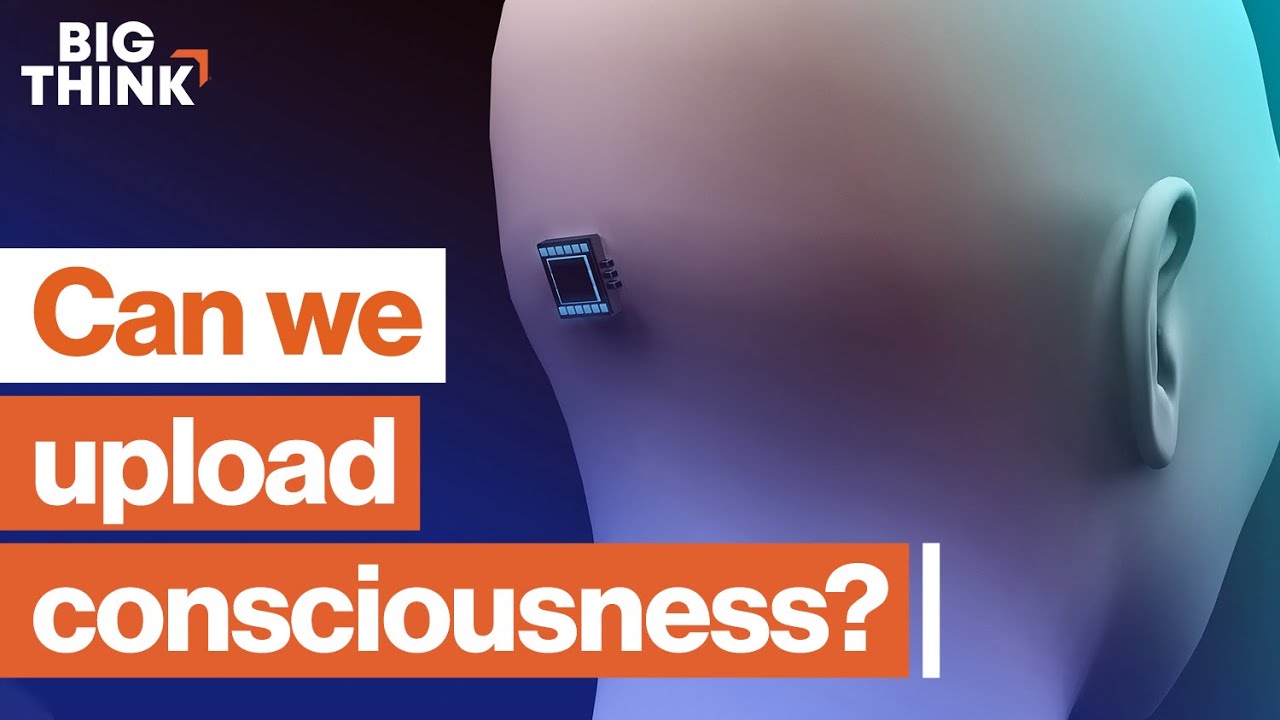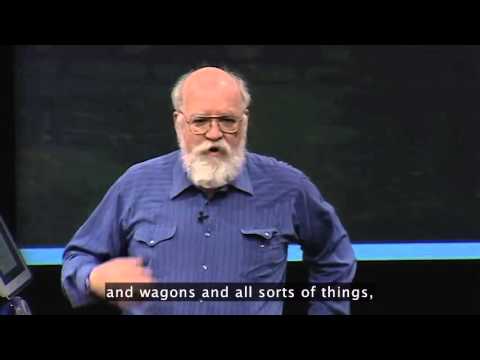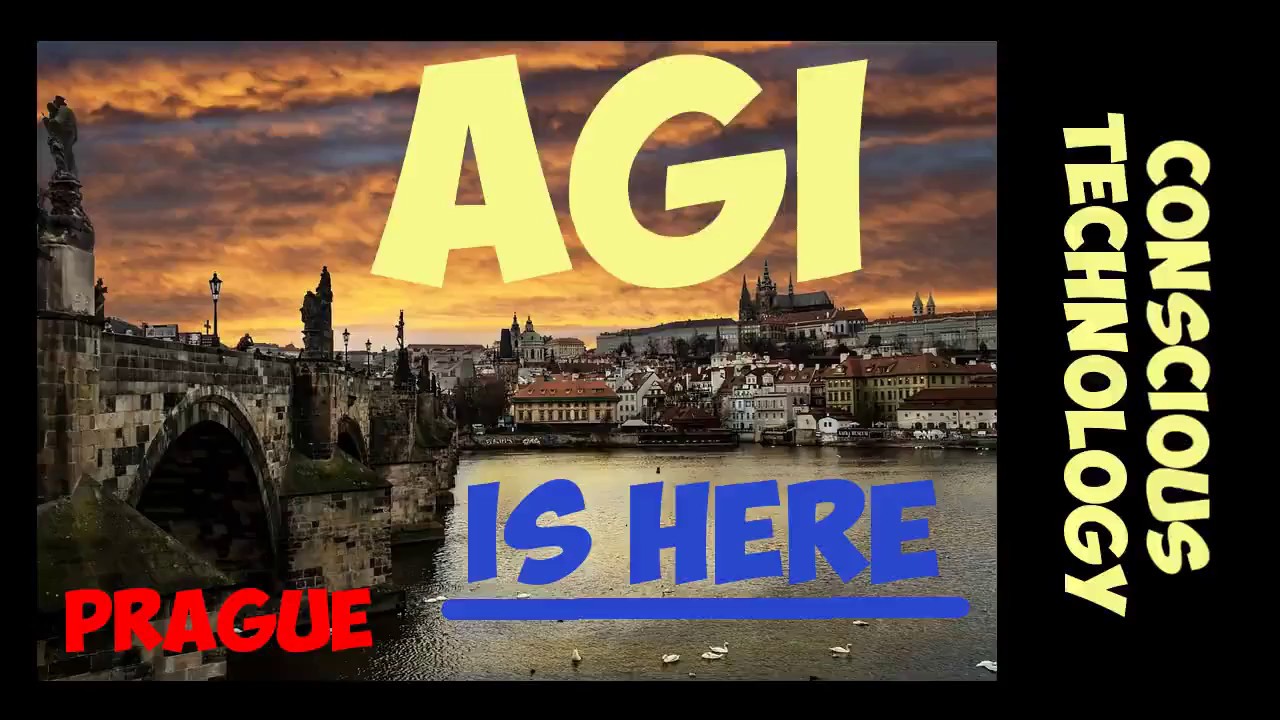Big Think
Immortality: Can we upload human consciousness?
Watch the newest video from Big Think: https://bigth.ink/NewVideo
Learn skills from the world’s top minds at Big Think Edge: https://bigth.ink/Edge
———————————————————————————-
Technology has evolved to a point where humans have overridden natural selection. So what will our species become? Immortal interstellar travelers, perhaps.
Scientists are currently mapping the human brain in an effort to understand the connections that produce consciousness. If we can re-create consciousness, your mind can live on forever. You could even laser-port your consciousness to different planets at the speed of light, download your mind into a local avatar and explore those worlds.
But is this transhumanist vision of the future real or is it a pipedream? And if it is real, is it wise? Join theoretical physicist Michio Kaku, neuroscientist David Eagleman, human performance researcher Steven Kotler, skeptic Michael Shermer, cultural theorist Douglas Rushkoff and futurist Jason Silva.
Read Michio Kaku’s book “The Future of the Mind: The Scientific Quest to Understand, Enhance, and Empower the Mind” at https://amzn.to/3mjVGtA
———————————————————————————-
TRANSCRIPT:
JASON SILVA: Transhumanism is essentially the philosophical school of thought that says that human beings should use technology to transcend their limitations. That it’s perfectly natural for us to use our tools to overcome our boundaries, to extend our minds, to extend our mindware using these technological scaffoldings. The craziness here is that we’re finding more and more that our technological systems are mirroring some of the most advanced natural systems in nature. You know, the internet is wired like the neurons in our brain, which is wired like computer models of dark matter in the universe. They all share the same intertwingled filamental structure. What does this tell us? That there is no distinction between the born and the made. All of it is nature, all of it is us. So to be human is to be transhuman.
But the reason we’re at a pivotal point in history is because now we’ve decommissioned natural selection. You know, this notion that we are now the chief agents of evolution, right? We now get to decide who we become. We’re talking about software that writes its own hardware, life itself, the new canvas for the artist. Nanotechnology patterning matter, programmable matter. The whole world becomes computable, life itself, programmable, upgradable. What does this say about what it means to be human? It means that what it is to be human is to transform and transcend; we’ve always done it. We’re not the same species we were 100,000 years ago. We’re not going to be the same species tomorrow. Craig Venter recently said we’ve got to understand that we are a software-driven species. Change the software, changed the species. And why shouldn’t we?
DAVID EAGLEMAN: All the pieces and parts of your brain, this vastly complicated network of neurons—almost 100 billion neurons, each of which has 10,000 connections to its neighbors. So we’re talking a thousand trillion neurons. It’s a system of such complexity that it bankrupts our language but, fundamentally, it’s only three pounds and we’ve got it cornered and it’s right there and it’s a physical system. The computational hypothesis of brain function suggests that the physical wetware isn’t the stuff that matters. It’s what are the algorithms that are running on top of the wetware? In other words, what is the brain actually doing? What’s it implementing, software-wise? Hypothetically, we should be able to take the physical stuff of the brain and reproduce what it’s doing. In other words, reproduce its software on other substrates. So we could take your brain and reproduce it out of beer cans and tennis balls and it would still run just fine. And if we said, “Hey, how are you feeling in there?” This beer-can-tennis-ball machine would say, “Oh, I’m feeling fine, it’s a little cold,” or whatever.
It’s also hypothetically a possibility that we could copy your brain and reproduce it in silica, which means on a computer, in zeros and ones, actually run the simulation of your brain.
MICHIO KAKU: The initial steps are once again being made. At Caltech, for example, they’ve been able to take a mouse brain and look at a certain part of the brain where memories are processed. Memories are processed at the very center of our brain and they’ve been able to duplicate the functions of that with a chip. So, again, this does not mean that we can encode memories with a chip, but it does mean that we’ve been able to take the information storage of a mouse brain and have a silicon chip duplicate those functions. And so was mouse consciousness created in the process? I don’t know. I don’t know…
Read the full transcript at https://bigthink.com/videos/can-humans-be-immortal
Source




Would you want to live forever?
I am a physicist and I will provide solid arguments proving that consciousness cannot be generated by the brain. Many argue that consciousness is an emergent property of the brain, but it is possible to show that such hypothesis is inconsistent with our scientific knowledges. In fact, it is possible to show that all the examples of emergent properties consists of concepts used to describe how an external object appear to our conscious mind, and not how it is. In other words, they are ideas conceived to describe or classify, according to arbitrary criteria and from an arbitrary point of view, certain processes or systems. In summary, emergent properties are intrinsically subjective, since they are based on the arbitrary choice to focus on certain aspects of a system and neglet other aspects, such as microscopic structures and processes. Here comes my first argument: arbitrariness, as well as subjectivity, implies the existence of a conscious mind, who can choose a specific point of view and arbitrary criteria. It is obvious that consciousness cannot be considered an emergent property of the physical reality, because consciousenss is a preliminary necessary condition for the existence of any emergent property. We have then a logical contradiction. Nothing which presupposes the existence of consciousness can be used to try to explain the existence of consciousness. Here comes my second argument: our scientific knowledge shows that brain processes consist of sequences of elementary physical processes; since consciousness is not a property of ordinary elementary physical processes, then a succession of such processes cannot have cosciousness as a property. In fact we can break down the process and analyze it moment by moment, and in every moment consciousness would be absent, so there would never be any consciousness during the entire sequence of elementary processes. Here comes my third argument: It must also be considered that brain processes consist of billions of sequences of elementary processes that take place in different points of the brain; if we attributed to these processes the property of consciousness, we would have to associate with the brain billions of different consciousnesses, that is billions of personalities, each with its own self-awareness and will; this contradicts our direct experience, that is, our awareness of being a single person who is able to control the voluntary movements of his own body with his own will. If cerebral processes are analyzed taking into account the laws of physics, these processes do not identify any unity; this missing unit is the necessarily non-physical element (precisely because it is missing in the brain), the element that interprets the brain processes and generates a unitary conscious state, that is the human mind. Here comes my forth argument: Consciousness is characterized by the fact that self-awareness is an immediate intuition that cannot be broken down or fragmented into simpler elements. This characteristic of consciousness of presenting itself as a unitary and non-decomposable state, not fragmented into billions of personalities, does not correspond to the quantum description of brain processes, which instead consist of billions of sequences of elementary incoherent quantum processes. When someone claims that consocoiusness is a property of the brain, they are impliticly considering the brain as a whole, an entity with its own specific properties, other than the properties of the components. From the physical point of view, the brain is not a whole, because its quantum state is not a coherent state, as in the case of entangled systems; the very fact of speaking of "brain" rather than many cells that have different quantum states, is an arbitrary choice. This is an important aspect, because, as I have said, consciousness is a necessary preliminary condition for the existence of arbitrariness. So if a system can be considered decomposable and considering it as a whole is an arbitrary choice, then it is inconsistent to hyotehsize that such system can have or generate consciousness, since consciousness is a necessary preliminary condition for the existence of any arbitrary choice. In other words, to regard consciousness as a property ofthe brain, we must first define what the brain is, and to do so we must rely only on the laws of physics, without introducing arbitrary notions extraneous to them; if this cannot be done, then it means that every property we attribute to the brain is not reducible to the laws of physics, and therefore such property would be nonphysical. Since the interactions between the quantum particles that make up the brain are ordinary interactions, it is not actually possible to define the brain based solely on the laws of physics. The only way to define the brain is to arbitrarily establish that a certain number of particles belong to it and others do not belong to it, but such arbitrariness is not admissible. In fact, the brain is not physically separated from the other organs of the body, with which it interacts, nor is it physically isolated from the external environment, just as it is not isolated from other brains, since we can communicate with other people, and to do so we use physical means, for example acoustic waves or electromagnetic waves (light). This necessary arbitrariness in defining what the brain is, is sufficient to demonstrate that consciousness is not reducible to the laws of physics. Based on these considerations, it would be completely unreasonable to assume that consciousness is generated by brain processes or is an emergent property of the brain
He is moving 2x
Why we r here on earth ?? I mean living good is just surviving but why this surviving is so important to us where this thought come from ??? Have we ever think about that , living good or bad is taking the human body in a journey of survival but where this instinct come from ????
Here's a thought…
Your mind is a function of your brain. An astoundingly complex bodily function, sure, but a bodily function nonetheless. Like, say, digestion is a function of your stomach, small intestine and colon. Now consider the sheer flakiness of the concept of uploading your digestion into a computer. And suddenly the idea of mind upload isn't quite so cut and dry, is it?
These people talk about this topic in a very wrong and superficial way only if you transfer your consciousness from your brain to a robot you can become immortal.Copying consciousness will not make you immortal but the system that has the copy will be immortal.1 Consciousness cannot be at 2 or more places at the same time
So basically you make a immortal identical clone.But you are still mortal.
Human's "software" and "hardware" are just one thing. You change the hardware (body) you change the software.
We want Independence from Nature and become our own.
My you folk are mighty positive.
They already have been doing that
Roshkov I think you are in denial, the neanderthal man was quirkier than us and wonderful too but did not get a chance. If your argument is that this type of evolution is not natural, I would strongly disagree.
doing this has been a dream of mine for year now im 16 and have a great understanding of human consciousness on par with neuroscientist by observing my self without research, its all there we can easily obtain knowledge on what consciousness is, it just means the magic in what we see as life and "being there" and being conscious will collapse. The brain is definitely computational and people fail to realize this because of the magic they experience. everything we experience is conceptional and valued by us, even ourself, the "you" inside of ur brain that most people feel is different then ur physical body is actually the values u put on ur self and litterally is the data of awareness. Its very similar to subconscious sensations we get from looking at our dog or objects our brain assigned value, we use five senses to view outside objects, but viewing ourself we have more sense thus creating much more perception and value over our self then others. Where i wanted to get at this is that "sending out consciousness " through signals or anything of that sort would not be the same at you it will always be a copy and the "you" that gets sent to the moon for say will be amazed of how you got to the moon and remember its past and act as if u traveled there but it really isnt u, that real u is still sitting back down on earth, and this is where ethics and morailty will be lost making copies of ur self always changing never the same you will possibly go on, now this can perhaps change and something new can be discovered but i truly think it will be like this if we try and im somewhat fine with it, other will not. main take away is seriously sitting down and truley being open minded(in terms of being open to loosing urself value) and thinking outside the box will lead u to loosing ethics and morals
"Because of the signs it was given to perform on behalf of the First Beast, it deceived those who dwell on the earth, telling them to MAKE AN IMAGE OF THE BEAST that had been wounded by the sword and yet had lived. The second beast was permitted to give breath to the Image of the First Beast, so that the Image could speak and cause all who refused to worship it to be killed."
-Book of Revelation 13:14-15; Holy Bible
He called me stupid 😤
العاب العقل
Honestly, when they shoot a laser beam containing my connectome to the alpha Centauri or beyond. They better not miss the target or my consciousness would be stuck as a laser beam traveling further away forever. Impossible to catch up to restore it.
Thus, just to be sure, I would just send a copy of myself. And every couple of centuries or millennia, depending on distance, I'll just to a merger with all my copies to keep up with the different fork changes. At that point, why even bother staying at one being?
Of course, before we can beam ourselves to other parts of the galaxy at the speed of light, we first will have to bring a receiver unit there the old-fashioned way. Which will take millennia. For those who are impatient, you can opt to remain in cold storage till then.
Or if you have been digitized, why not live in a virtual world? Where you can be a god. Why even bother with the physical world after all? Just upload all our minds to a great matrix-like server and build a Dyson sphere to power it for eons. Perhaps the reason we don't detect other intelligent live in the universe is because they're all playing on their own private server. 🙂
Would it actually be us? Or just a copy? Would we die and and a copy live on? Can we transfer the soul? If so would we in turn be creating our own hell? Imagine being trapped in a lifeless robotic body for eternity never being able to die. if you are taken offline/shut down, would the soul be trapped?
Isn't the brain an electro-chemical machine?
You would not only have to upload the physical structure, but also the chemical structure and makeup of the brain.
I don't know, maybe I'm way off.
I AM GOING TO LIVE FOREVER! MY SOUL WILL NEVER DIE!! I WILL ONLY TRANSCEND FROM THIS VESSEL ( BODY) THAT I AM CURRENTLY IN
We can’t transfer the consciousness, because it’s not movable actually. The consciousness is not material thing. It is moving through body….like car 🚘 running but we are still in car, earth moving but we are still.
have any of you played SOMA? this really reminds me of that game.